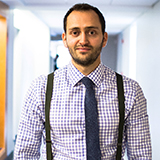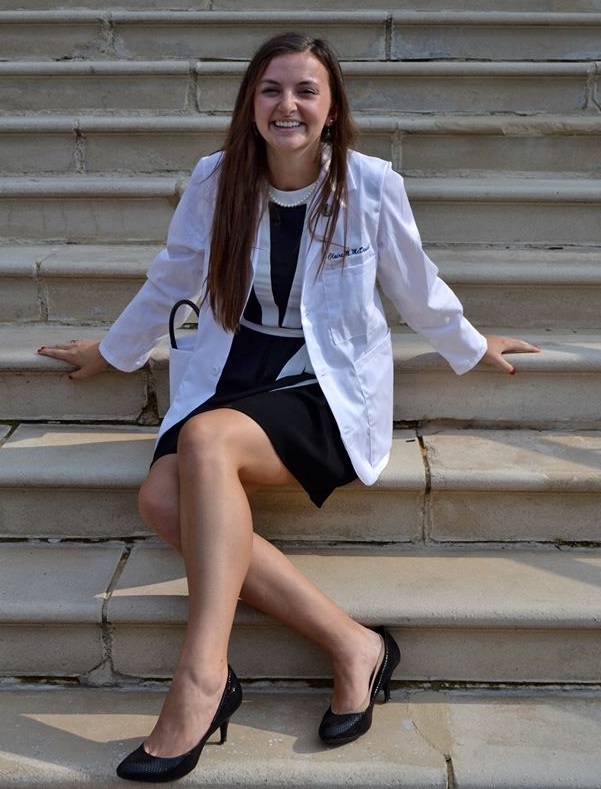The Doctors’ Book Club
Adam Johnson The Orphan Master’s Son
After her son was arrested by the secret police, Anna Akhmatova spent seventeen months waiting outside the Leningrad prisons for news of his wellbeing. Standing next to scores of other women similarly hoping to hear that their loved ones were alive, Akhmatova composed “Requiem,” a lyrical poem that explores the helplessness of living in a totalitarian state:
I’ve cried for seventeen long months,
I’ve called you for your home,
I fell at hangmen’ feet—not once,
My womb and hell you’re from.
The absurdity and powerlessness of life in oppressive regimes is explored in Adam Johnson’s The Orphan Master’s Son. The novel chronicles the life of a North Korean named Jun Do beginning with his childhood in an orphanage. His life takes a series of strange turns as he begins work in the underground military tunnels, then as a professional kidnapper, and a naval spy. He travels to Texas on a mission to gather intelligence and acquire thousands of DVDs for the Dear Leader. Then without explanation, he is sent to a remote labor camp. As he struggles to survive in the horrible conditions, his life takes another unexpected shift as he serendipitously switches places with a national hero. Though the vicissitude of events may seem fantastical, the novel maintains a clear devotion to realism and the exploration of the human condition.
The narrative structure that interweaves storytelling and propaganda ultimately forces readers to question the nature and purpose of “truth.” The novel opens with the voice of the loudspeaker in the form of constant “evening propaganda broadcasts coming over the apartment’s hardwired loudspeaker” of which “there’s one in every apartment and factory floor in Pyongyang.” Johnson makes clear that this world is nothing like the world we know, and immediately frames the coming narrative within the confines of an official party point of view.
There are several functions to this voice. It enables us to see the North Korean world through the same lens that is offered to its citizens (the voice of the loudspeaker reads very similarly to the official North Korean memos released to the public). At the same time, the multiple points of view crafted by the voice of Jun Do, the loudspeaker, and a party interrogator, help create a cross-section of life across Pyongyang, portraying the same event from a multitude of viewpoints. Truth, we learn, is a constantly moving target.
This phenomenon is familiar to those exposed to hospital culture. When a patient is seen in the hospital, his story emerges out of several different narratives— other physicians’ notes, the laboratory and radiologic findings, the patient’s narrative, and our own observations. In isolation, each story represents a part of a whole. But together, they help paint a complete picture. But does that bring us any closer to the truth?
In Johnson’s world, the concept of truth is difficult to pin down. For example, should we believe that Jun Do’s story is factually true? After all, the sequence of events that leads to the story’s climax are hardly believable: Jun Do, working in the mines of a remote labor camp, kills the North Korean national taekwondo champion (and minister of the mines) in hand-to-hand combat after which he effortlessly slips in his place and begins living alongside his wife and children. Perhaps in a world as strange as North Korea, such an event could, indeed, be true. As Jun Do learns, “if a farmer is declared a music virtuoso by the state, everyone had better start calling him maestro. And secretly, he’d be wise to start practising the piano. For us, the story is more important than the person. If a man and his story are in conflict, it is the man who must change.” Yet Johnson also seems to suggest that the verifiability of a story is not its most important trait. What matters is that we understand the complexity a North Korean citizen’s life, regardless of the facts involved.
In this way, Johnson’s story pushes readers to confront their own narratives. Do we tell stories for their facts of for their message? And can that idea be extended to our interpretation of patient stories? Could our habit of truth-seeking stand in our way of understanding? After all, stories of pain and suffering are seldom neat. As Johnson notes in an interview, “Trauma narratives are hallmarked by fragmentation, broken chronology, changing perspectives, shifts in tone, and absented moments.”
We invite your personal reflections on truth and narratives in the healthcare setting. What is the role of truth in a clinical context, especially in patients’ stories? Are ‘truth’ and ‘fact’ inextricably linked in clinical encounters? Do you have a story of a patient whose narrative may not have been factually correct but nevertheless “honest”? Please post it below!
Next Month:
We will discuss All The Light We Cannot See, by Anthony Doerr.
Questions to consider:
-How does Doerr portray blindness in this work?
-Is it cliché or quite nuanced?
-What are Doerr’s positions on choice and free will (do Marie Laure or Werner have a choice or are they cast into their futures by circumstance?)
-What do we make of the legend of the Sea of Flame and Sergeant Major Reinhold von -Rumpel’s quest to find it in order to treat his terminal cancer?
-What does von Rumpel’s belief in extraordinary healing powers of a gem suggest about the way people approach illness?
-Does Doerr’s portrayal of von Rumpel’s disease help excuse his motivations?
 Daniel Marchalik is completing his urologic surgery residency in Washington, D.C. He writes a monthly column for The Lancet and directs the Literature and Medicine Track at the Georgetown University School of Medicine.
Daniel Marchalik is completing his urologic surgery residency in Washington, D.C. He writes a monthly column for The Lancet and directs the Literature and Medicine Track at the Georgetown University School of Medicine.
Claire McDaniel is a second year medical student at Georgetown University School of Medicine in Washington, DC, participating in the school’s Literature and Medicine Track. Additionally, she is an MBA candidate at Georgetown University McDonough School of Business.
Competing interests: None declared.

